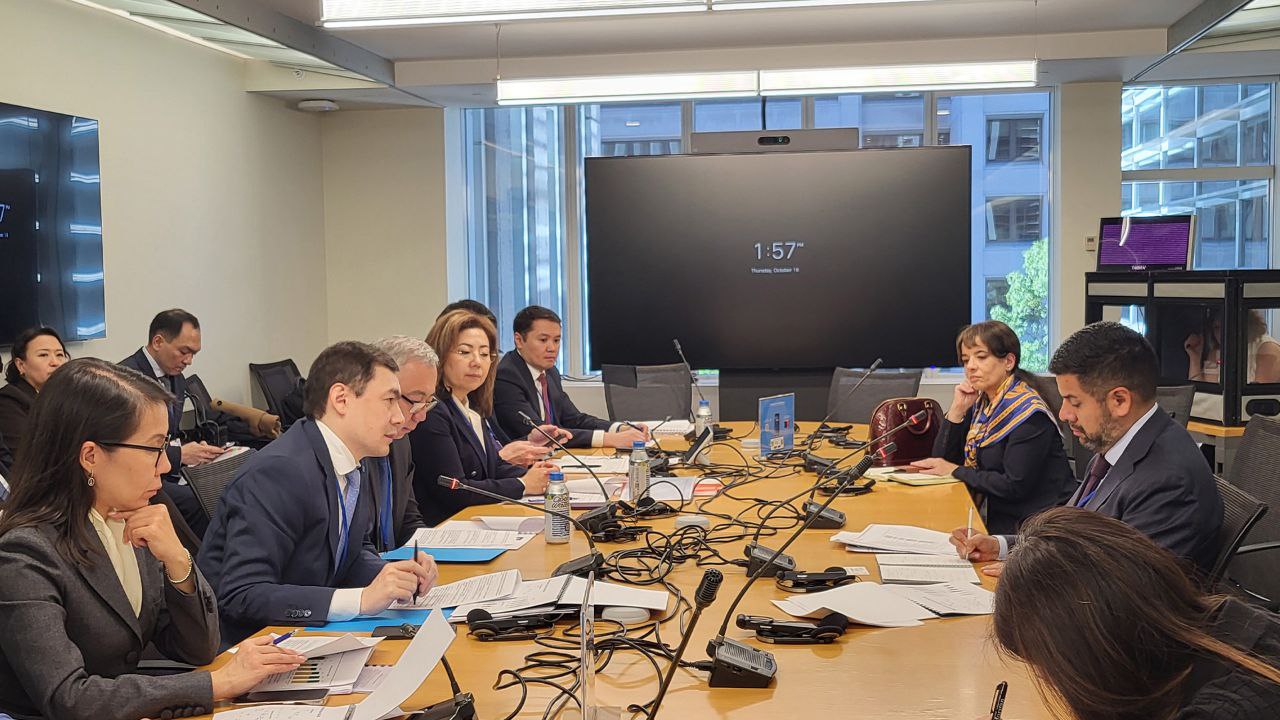ASTANA, Kazakhstan, October 17. Kazakhstan showcased the outcomes of its structural reforms and medium-term economic prospects to international rating agencies during the World Bank and IMF Autumn Meetings, Trend reports via the country's Ministry of Economy.
The Kazakh delegation, led by Deputy Prime Minister and Minister of National Economy Serik Zhumangarin, held meetings with representatives of Fitch Ratings, Moody’s, and S&P Global Ratings.
The discussions were attended by Chair of the Agency for Regulation and Development of the Financial Market Madina Abylkassymova, as well as senior officials from the Ministry of National Economy, the Ministry of Foreign Affairs, the National Bank, and the Baiterek Holding.
During the meetings, Kazakhstan presented key macroeconomic indicators, forecasts, and priorities of ongoing structural reforms aimed at ensuring sustainable growth. Special emphasis was placed on economic diversification.
As noted by Zhumangarin, Kazakhstan’s economy has become significantly more diversified over the past 15 years; the share of the oil sector in GDP has declined from 16.5 percent in 2010 to 8.1 percent in 2024, while manufacturing now exceeds extractive industries in GDP contribution. Over the past two decades, FDI inflows into manufacturing have multiplied, and SMEs now account for around 40 percent of GDP compared to 25 percent a decade ago.
In the first three quarters of 2025, investment in fixed capital saw a healthy uptick of 13.5 percent. In the first half of the year, FDI inflows reached $10 billion, with $6.3 billion directed into non-resource sectors. The government aims to further boost investment activity and reach a GDP target of $450 billion by 2029.
Kazakhstan also outlined the results of large-scale fiscal and tax reforms. The new Budget Code introduces two countercyclical rules designed to reduce dependence on oil revenues and stabilize expenditures—limiting guaranteed transfers from the National Fund and the growth of budget spending. The current year’s budget was formed under these principles, reinforcing fiscal sustainability.
Representatives of Fitch, Moody’s, and S&P expressed strong interest in the implementation of the new budget and tax codes, as well as in Kazakhstan’s efforts to curb inflation and maintain macroeconomic stability. The Kazakh delegation delivered exhaustive elucidations to all inquiries posited throughout the deliberations.
To note, Fitch, Moody's, and S&P initiated their credit rating assessments for Kazakhstan, subsequently elevating the nation's rating in 2001. This upgrade was predicated on Kazakhstan's robust fiscal stance and substantial export revenues during that fiscal year.
Stay up-to-date with more news on Trend News Agency's WhatsApp channel







